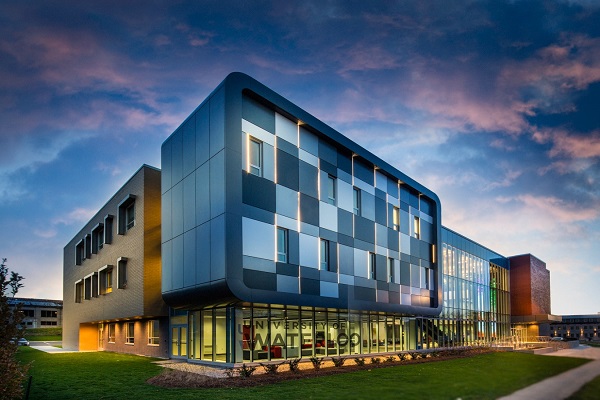University of Waterloo: Turning pollution into renewable energy
Dr. Edris Madadian was an environmentalist before he became an engineer, a passion he now wears on his sleeve as a postdoctoral researcher.
His research focuses on contamination from pharmaceutical and personal care products that go down our drains or are flushed down toilets and become sewage sludge, a by-product of wastewater treatment. The disposal of COVID-19 personal protective equipment adds to the issue on a global scale.
These products are biologically active and have unknown effects on delicate water and land ecosystems, leading to lasting harmful consequences on food chains and the endocrine systems of living beings.
Edris Madadian
Dr. Edris Madadian came to Waterloo Engineering to pursue his research as an AMTD postdoctoral fellow.
Madadian came to the University of Waterloo from Iran in 2020 as a recipient of the AMTD Waterloo Global Talent Postdoctoral Fellowship. The mission of the AMTD program is to attract and support scholars to advance the development of revolutionary expertise and create research that will contribute to waves of disruption for the betterment of society.
Madadian’s groundbreaking research, which aims to take ubiquitous contaminants out of the environment and turn them into renewable energy, certainly fits the bill.
His work has been dedicated to two main topics: environmental remediation technologies and advanced biofuels. The connecting point of these two topics is value-added materials. His goal was to remove these products from the environment, and his background in thermochemical conversion pathways became the inspiration to produce biochar and bio-oil from this process.
“I believe chemical engineers are in the front line of sustainability as they play a critical role in the creation and manufacturing of a wide range of products in our life,” says Madadian.
“Designing materials which are recyclable and generate less pollution after their life cycle is a cornerstone guaranteeing the concept of sustainability. A sustainable world requires efficient remediation technologies to improve human health and boost the ecosystem.”
Funded by alumnus Calvin Choi
Madadian feels that the creation of the AMTD fellowship, funded by Waterloo alumnus and successful entrepreneur Calvin Choi, demonstrates a deep understanding of the role postdocs can play in providing leading-edge solutions to global challenges.
As one of four inaugural AMTD fellows, he felt supported in his journey by both Graduate Studies and Postdoctoral Affairs (GSPA) and his supervisor, Dr. David Simakov from the Department of Chemical Engineering, who provided insight on how to best improve the quality of his research.
“From the very beginning, I was impressed by the professionalism and creativity of Edris,” Simakov says. “He has deep knowledge in the areas of renewable energy and sustainability, which was one of the main factors affecting my decision to start working together on the project funded by the prestigious AMTD fellowship.”
‘Setting a new bar’
Professional development plans and opportunities offered by the fellowship and the University helped Madadian create a path forward for his research. The project has resulted in three published papers in scientific journals and another one is in the works.
“AMTD fellowship is setting a new bar in Canada and internationally for postdoctoral scholars and that is why I encourage my peers to apply for it,” Madadian says.
With the fellowship now over, Madadian plans to create an economic model and develop a plan to commercialize his decontamination process through a start-up which focuses on sustainability projects.

